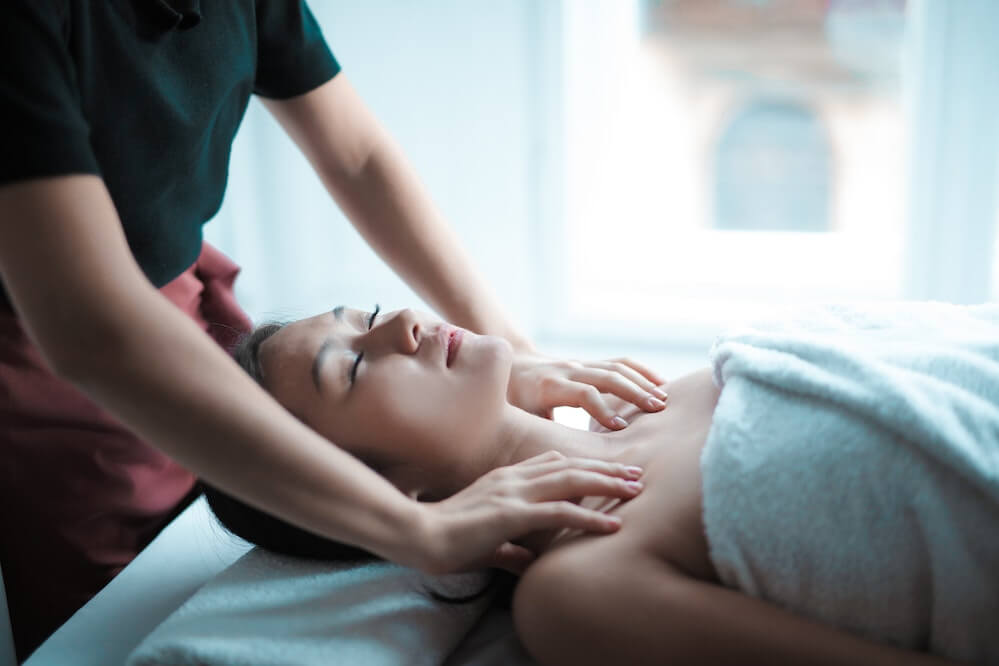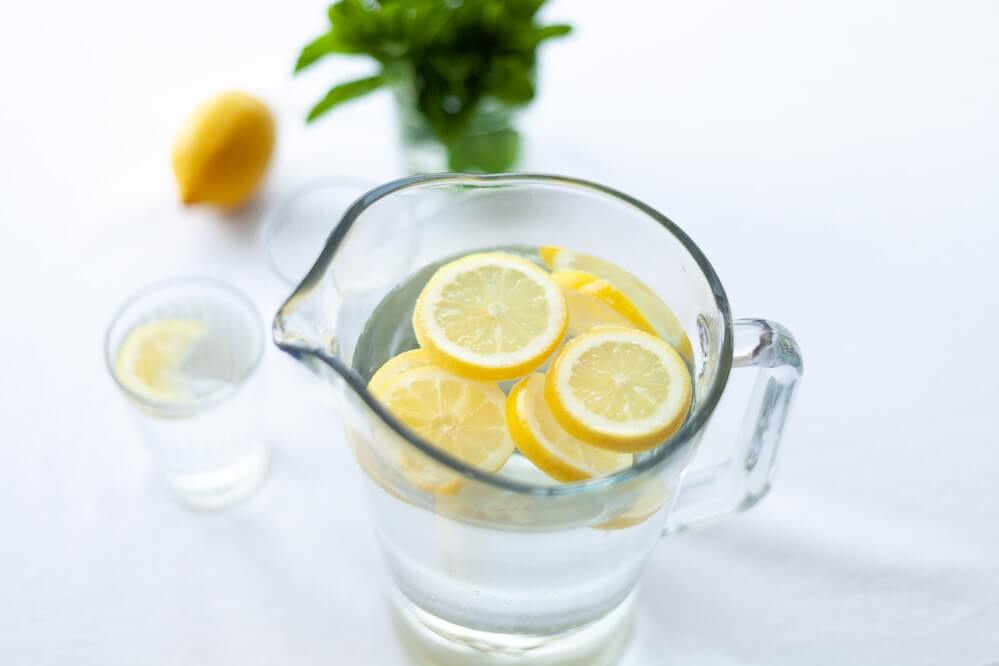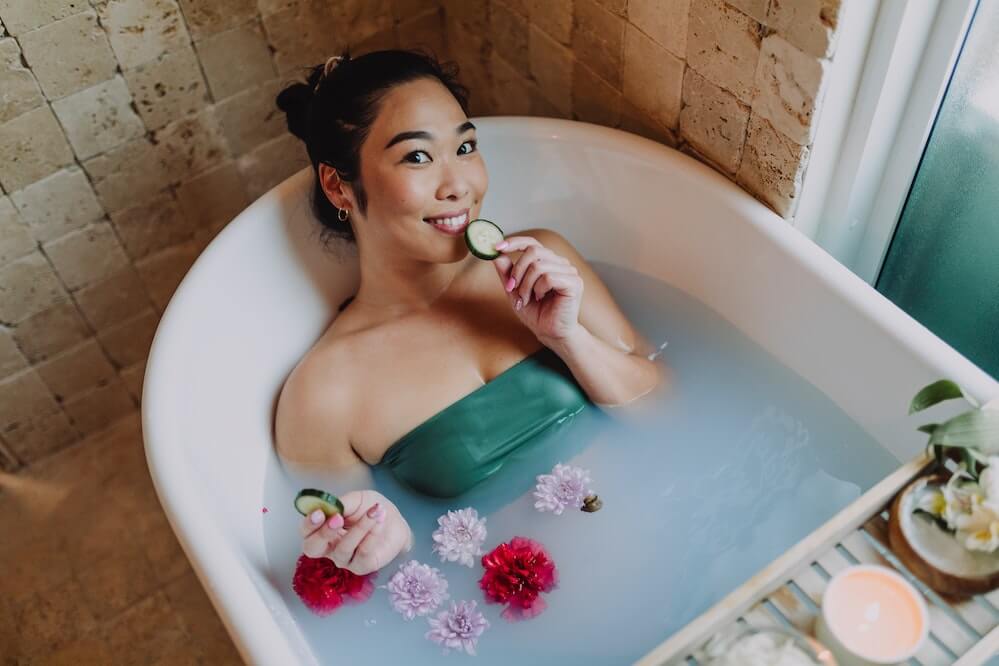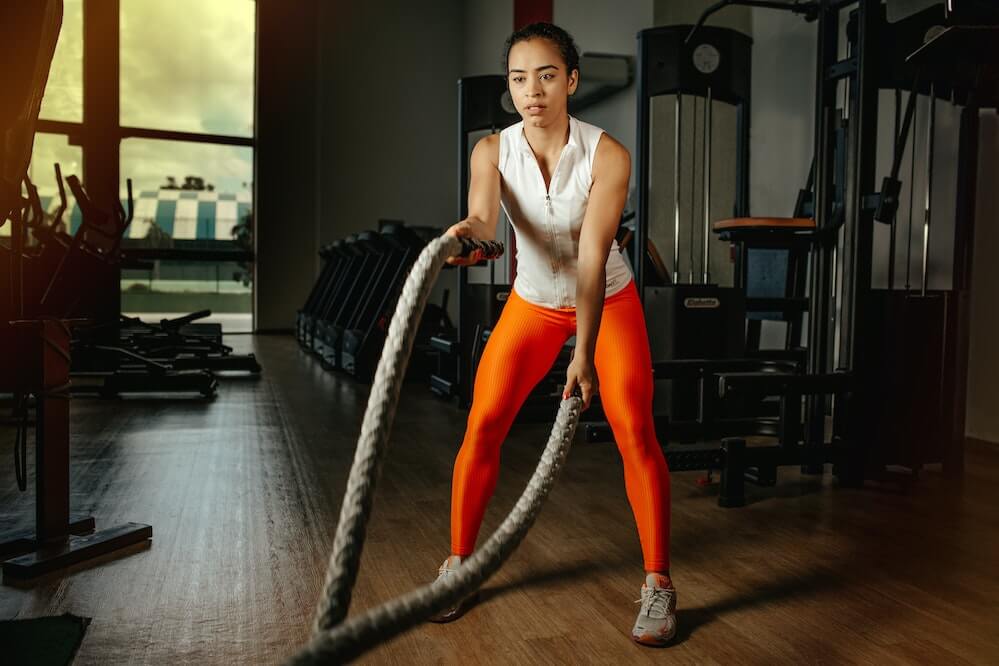Massages have become popular for not only treating and managing health conditions but also promoting mental wellness. As getting a massage has many physical and mental benefits, you’ll want to try your best to ensure those benefits are long-lasting.
If you’re getting a massage for the first time and you want to get the full return out of it, or if you’ve missed your massage therapist‘s instructions, read this guide as we go over what to do after a massage, what the benefits of getting a massage are, what to do before a massage, and much more.
How To Prepare for a Massage
Preparing for a massage appropriately will help you take in the full benefit of your massage session. You can prepare for a massage by:
- Wearing loose, comfortable clothes: This will allow you to relax and get undressed more easily. Also, since you may feel tender after the massage, loose clothes will make you more comfortable.
- Breathing normally: While it’s understandable that you’ll feel nervous initially, holding your breath can tighten your muscles, thus limiting the benefits of a massage. Remember to breathe normally.
- Arriving on time: Make sure to arrive on time, as coming in a rushed state can make it harder to relax.
- Relaxing your muscles and mind: Let go of unimportant thoughts and be more body-centered. This way, you’ll relax your body and loosen your muscles.
- Communicating your needs: You should give accurate health information, express your expectations, let your therapist know if you have any allergies to oils or lotion ingredients, and give feedback on the amount of pressure or speed of hand movement.
What To Do After a Massage
So, you’ve gotten a massage and feel relaxed, de-stressed, and calm but don’t know how to prolong these feelings as much as possible. Follow along and learn the most important steps you can take after a massage.
Hydrate
Hydration and massages go hand in hand, as massage helps release the knots and pain caused by toxins (lactic acid and metabolic waste). And because they stimulate blood flowing and circulation in the areas deprived of nutrients and they get fluid pumped out of the soft tissue into the circulatory system, massages are dehydrating. That’s why, before and after getting a massage, you should drink at least eight glasses of water in 24 hours to hydrate your body and help remove toxins from your body.
Stretch
A massage will loosen your stiff muscles and knots, which is all the more reason to stretch after getting a massage. Stretching helps improve muscle recovery, realigns muscle fibers, and improves flexibility. After getting a massage, you should try doing gentle stretches (lunges, toe touches, and torso rotations) for a few minutes.
Have light meals
With the oxygen and blood circulating more freely, massages can make you feel hungry afterward. And while it’s tempting to eat a heavy meal to satisfy that hunger, doing so can make you feel bloated and uncomfortable. Instead, opt for light meals and snacks to boost energy without feeling heavy. You can eat steamed or stir-fried vegetables, brown rice, baked sweet potatoes, bananas, chicken salad, chocolate, pasta, etc.
Have a bath
A massage and bath are the best combos for a relaxing self-care day. While we don’t recommend a hot or cold shower after a massage, a warm shower or bath is the best option to encourage rest. Taking a bath with essential oils (lavender oil), candles, and salts will take you to the next level of relaxation. If you’re feeling sore or have any aches, adding two cups of Epsom salt will relieve pain, reduce inflammation and increase circulation.
Relax and rest
You’ll want to prolonge feeling relaxed, calm, and content as much as you can, which is why we suggest that you schedule your massage appointment on the days you don’t have any obligations afterward, such as after work, on weekends, or in general, when you don’t have a busy schedule. While it’s more than understandable that you won’t always be able to rest and relax for the day, when you can do so, try to do what your body is asking: sleeping, stretching, curling under a blanket, going for a walk, reading, or taking a long bath.
Release your toxins
Kneading and working muscles release toxins into your circulatory system, which head toward the kidneys. This only emphasizes the need to drink water after a massage, as you can flush out toxins and metabolic waste. You can also eat food and drink fruit juice packed with antioxidants, such as leafy greens, blueberries, oranges, grapefruits, carrots, kale, bell peppers, etc.
What Not To Do After a Massage
Getting a massage is a relaxing and rejuvenating experience, some of which can be hindered by not following instructions on what not to do after a massage. Given that you want to see the best results from your treatment and don’t want to feel pain and discomfort, we suggest avoiding the following:
Don’t do strenuous activities
After getting a massage and putting your body in relaxation mode, a big no-no is doing any strenuous activity or exercise. Doing so may harm your muscles and run the risk of injury. Instead, you should go for a walk, stretch your muscles, or do yoga for a few minutes.
Don’t get involved in stressful situations
A leading benefit of getting a massage is that it relieves stress. Therefore, try to avoid stressful situations before and after your appointment as much as possible. You can turn the day of your appointment into a self-care day by rescheduling meetings or postponing errands to give yourself a well-earned break.
Don’t drink caffeinated beverages
Staying hydrated after a massage is the most important thing you must do for your body. Therefore, it would be best to avoid dehydrating beverages such as coffee and other caffeinated drinks (tea, energy drinks, soda) for at least 12 hours or until the next day. Instead, opt for smoothies or fruit juices high in antioxidants.
Conclusion
Massages can be the best addition to your health and wellness routine and have many physical and mental benefits:
- Physical benefits: Improved circulation, less pain and soreness, decreased muscle stiffness and joint inflammation, better sleep, improved flexibility, and quicker recovery between recovery.
- Mental benefits: More energy, decreased anxiety, improved relaxation, lower stress levels, improved mood, and an increased feeling of wellness.
The effects of massage are consultative, and you’ll see the most significant benefits over time. You’ll also want to go back as the endorphins release will make you feel relaxed and energized. Therefore, prepare to schedule several massage sessions.
Furthermore, you’ll find many benefits if you’re interested in becoming a massage therapist, such as travel opportunities, flexible working hours, and a less stressful work environment. Check out our Medical Massage Therapy program to start your journey and become licensed.



